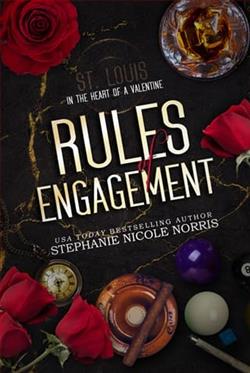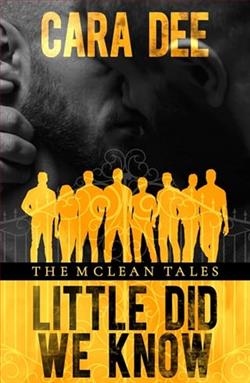Page 198 of Secrets Beneath the Waves
Graham glances at the rearview mirror, then at me. “You okay?”
“Just frustrated. Tired. Worried.”
“Do you think the CIA should pay the ransom?”
I hesitate at the question. While I want to say yes, we both know that paying won’t make this disappear. Not if Oumar’s ransom is connected to an arms deal. We don’t even have confirmation Oumar is alive, or that he would be released if they were paid. And then there’s always the logical aversionby the intelligence community to paying terrorist-linked arms syndicates and possibly encouraging future kidnappings.
“Honestly, all I know is that not only is time running out for Oumar, but the deeper we go, the more certain I am that the stakes are far more complex—and far more calculated—than a simple abduction.”
“Agreed,” Graham says, stopping at a light. “And if it does come down to the wire, who knows. . .they might authorize moving the funds.”
“And if this is all a setup, like Rourke said, to flush out Oumar’s involvement with the CIA?”
There are simply too many unknowns.
I catch Graham looking into the rearview mirror again, then look back myself. “Do you think someone’s following us?”
“No. Just feeling extra cautious.”
I frown, understanding all too well Graham’s caution. His concern is that this could be a trap. And I agree. Meeting Rourke before dawn in a parking garage is risky. We’re the ones who went to him in the first place, but with his murky past and checkered history with the intel community, trusting him is naïve.
It’s still dark when we pull in near the entrance where Rourke told us to meet him. My nerves are wired tight as I get out of the car a moment later and breathe in the musty mixture of exhaust and fuel. We spot him near the far wall of the garage, half in the shadows, half in the light of a bare overhead bulb. Every instinct inside me sharpens—senses tightened, nerves stretched just enough to remind me this could still go sideways. He’s standing next to his black sedan, clothes unchanged since last night, though he has lost the suit jacket and his sleeves are rolled up.
Rourke folds his arms across his chest at our approach. “Your asset was in a lot deeper than even you originally thought.”
“Tell us what you know,” Graham says.
“I called in a few favors from a contact of mine. He confirmed the rumor that the Russians are holding Oumar, but that’s just a part of our problem.”
I note his use ofour problem,but don’t say anything.
“Okay,” I say. “What else?”
“There’s a two-hundred-million-dollar arms transaction that’s already been set in motion. All scheduled sometime within the next twenty-four hours.” Rourke clears his throat. “Now, I might not always function above the law, but even I don’t want that to happen.”
“Who’s buying?” Graham asks.
“A newly emerged military faction out of north Africa that is frantically working to seize control of key trade routes. More than likely, they will use this weapons deal—if it goes through—to help them gain legitimacy and even challenge national armies in their attempt to gain regional dominance in the Sahel.”
I glance at Graham. “This has to be what Oumar told me he was working on.”
A deal that huge will only continue to destabilize the area, as well as compromise UN peacekeeping operations.
I turn back to Rourke. “What is Oumar’s role in all this?”
“According to my contact, your asset is the only one who knows all of the players and details of the trade.”
“Information the Russians need,” Graham says.
“He’s got to be worried they’re trying to turn things to their advantage,” Rourke says. “Trying to reroute the weapons to their own network.”
“So to stop this, we need Oumar,” I say.
Rourke nods.
“We’re going to have to verify all of this,” I say.
Rourke shakes his head. “Here’s the other bit of bad news. You’re out of time. I was able to confirm that arms are readyto be shipped, which means the chances of intercepting and stopping them will be challenging if not impossible. I know how fast the intelligence community moves.”















